Table of Contents
The new year is coming and along with it, also the time when we probably balance all of our right and wrong decisions. At the same time, you probably think of the fitness goals that you have or haven’t achieved.
Thanks to Internet, misinformations, maybe with the best intentions, are spreading much faster nowadays. Myths that were spread by oral way in fitness centre or in the gym in the past, have taken control over the social media, blogs or various discussion forums. Studies that are time-consuming to study are avoided by journalists who often publicize information without verification. That is why we are bringing you up the list of the most popular myths. Take a seat, we are beginning!
Myth number 1: Carbohydrates harm you
The biggest enemy of the population was fat for the long years. However today, the media have found a new victim. Carbohydrates. General claims of carbohydrates and insulin are becoming popular every year. Many people judge the seriousness of food according to glycemic and insulin index. Cholesterol which is one-sidedly considered as dangerous is also misunderstood.
Despite that, our bodies need and produce both substances. Cholesterol serves for the pregnenolone preparation and for many other hormones such as testosterone. Insulin is obligatory for preserving glucose (sugar in the blood) or for using it for energy production. Insulin was one of the first discovered hormones, and along with it also one of the first examined in the context of sensitivity.
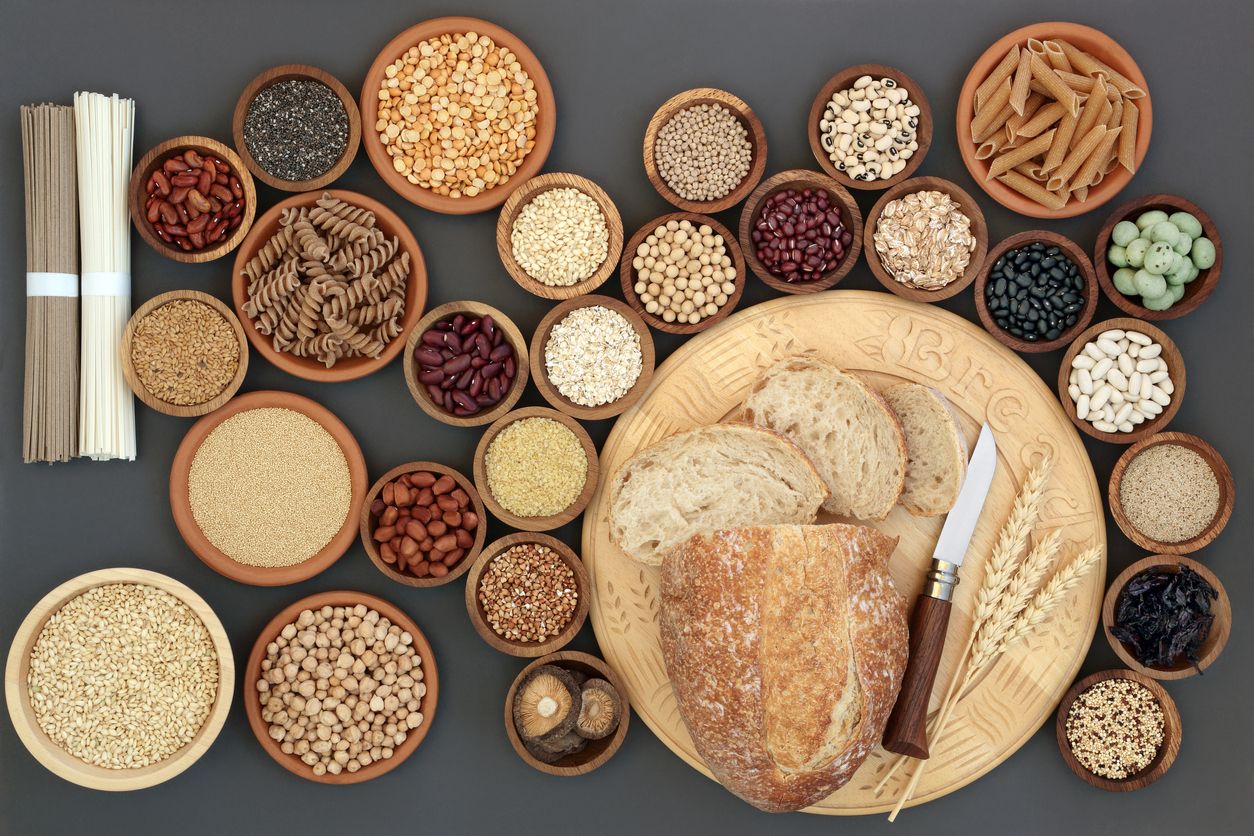
It was found out a long time ago that carbohydrates can cause insulin insensitivity. This can be applied within diabetes and people with insulin resistance who overeat with carbohydrates. It cannot be applied within healthy people who eat balanced food. It is true that overeating with carbohydrates isn’t anything complicated in the modern society. Processed carbohydrates are often very tasty but rarely feed you up even if they have high calorie content.
Limiting of carbohydrates (mainly processed ones) can be the right decision if you want to dismantle fat or to eat less. But if you are unhappy and hungry because of limiting carbohydrates, you should consider other options. If you want to lose weight, it is not important to replace fat with carbohydrates or carbohydrates with fat but to end day with with caloric deficit.
Truth: Carbohydrates were defamed for too long. Unless you consume them in high amounts, they are not essentially harmful.
Myth number 2: Fats harm you
If you eat fats, you’ll gain weight. Is it true? The traditional way of losing weight was considered diet with lowered fat receive for many years. But with the coming of new studies, old knowledge is no longer applicable. Today we know that as the cholesterol consuming is not directly responsible for increasing of cholesterol in blood, the same way fat consuming is not responsible why we gain weight.
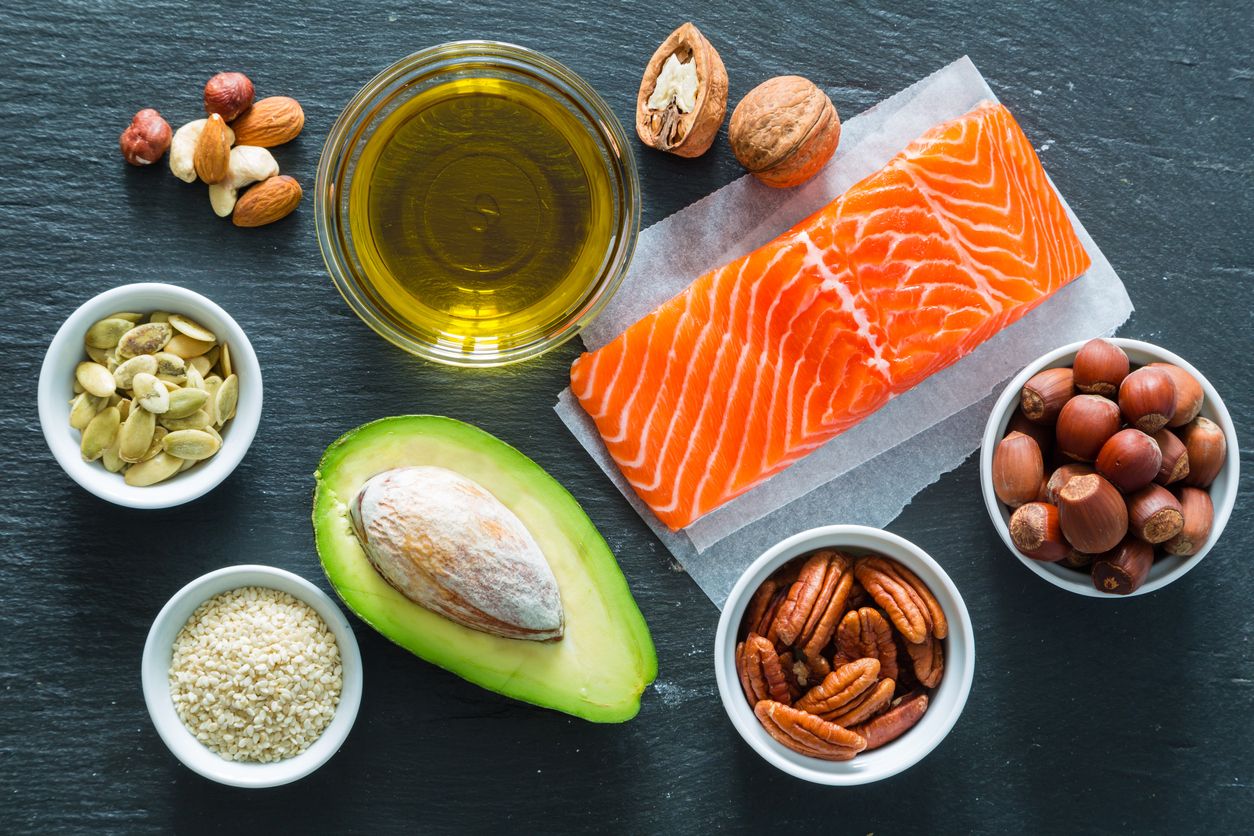
On the contrary – avoiding all fats can be dangerous for you because you need to receive omega-3 and omega-6 fatty acids for the right functioning. The myth is also claim that saturated fat causes cardiovascular diseases. Trans fat is the only harmful for organism. Small amount definitely won’t kill you, but if you can, avoid it.
Truth: If you are in caloric abundance, diet with limited fat receiving won’t cause the weight loss but will lower your testosterone production. You need to receive omega-3 and omega-6 fatty acids because not saturated fat, but too much of trans fats can cause a heart attack.
You might be interested in these products:
Myth number 3: Protein harms you
We most frequently blame the carbohydrates and fats for our health problems but neither the third micronutrient is always spared by medias. Protein is accused of bones and kidneys damage.
Let’s explain these claims one after another. In the earliest study, there had been found that protein consumption is related to increased calcium content in urine which there was assumed that it leads to bone loss over time. Latter studies has found out that calcium in urine is weak predictor of bone mass and that protein has protective or minimum effect on the bones.
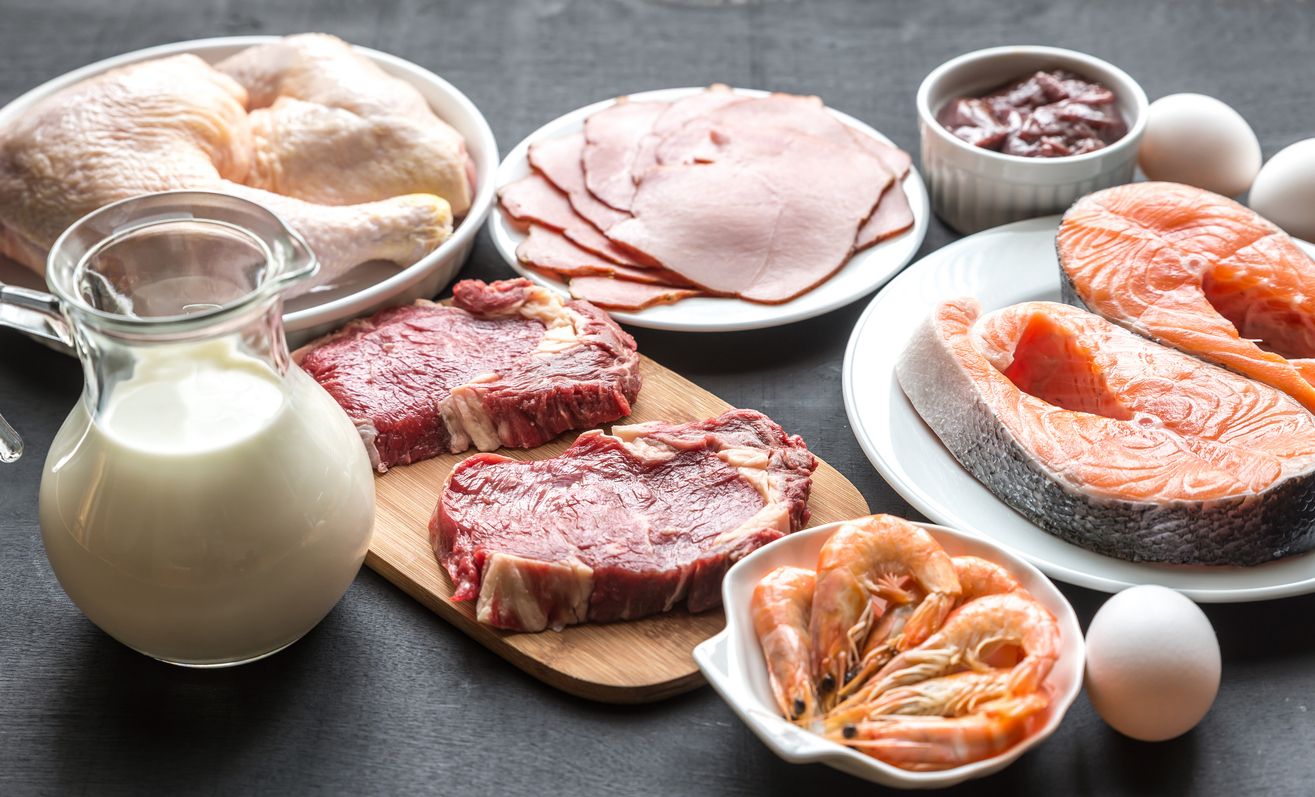
Other earlier studies had shown that high protein diets increase the speed of glomerular filtration (GFR) which takes place in glomerular membrane of the kidneys. It was claimed that increased GFR is the sign of stress affecting the kidneys. Newer study has shown that kidneys damages don’t occur in consequence of increased amount of proteins.
Truth: Protein even in higher amount is not harmful for the bones. It won’t damage even your kidneys unless you are suffering of already existing disease.
Myth number 4: Don’t eat eggs yolks
If the media are good at something, it is frightening people with totally harmless food.

Eggs are demonized because yolks which are full of nutrients contain high cholesterol levels. Is it terrifying you? It shouldn’t be because consuming of food with high cholesterol level doesn’t have the effect of increasing cholesterol level for the majority of people. Additionally, there hasn’t been found any coherence between eggs and cardiovascular diseases in studies, only in the case of people with certain predispositions (diabetes or hyperglycemia)
Truth: Eggs are a great source of proteins, fats and other nutrients. Their effect on high cholesterol and growth of cardiovascular diseases was overestimating for years.
Myth number 5: Red meat causes cancer
Claims such as these are absolute myth. Cancer is very debatable disease. Although, almost everything that we eat has potential to be included in cancer growth. For example, antioxidants – these can support the cancer growth or also can stop it – their effect is inconspicuous enough to be noticed by someone.
Some constituents of the red meat – such as polyaromatic hydrocarbons (PAHs) are responsible for destroying of genome which is the first step in the growth of potential cancer. Present-day findings suggest that red meat can present the cancer growth for people with evil treatment, wrong nutrition and stressing lifestyle. If you exercise, eat vegetable and don’t smoke, the red meat effect is not something you should be worried about.
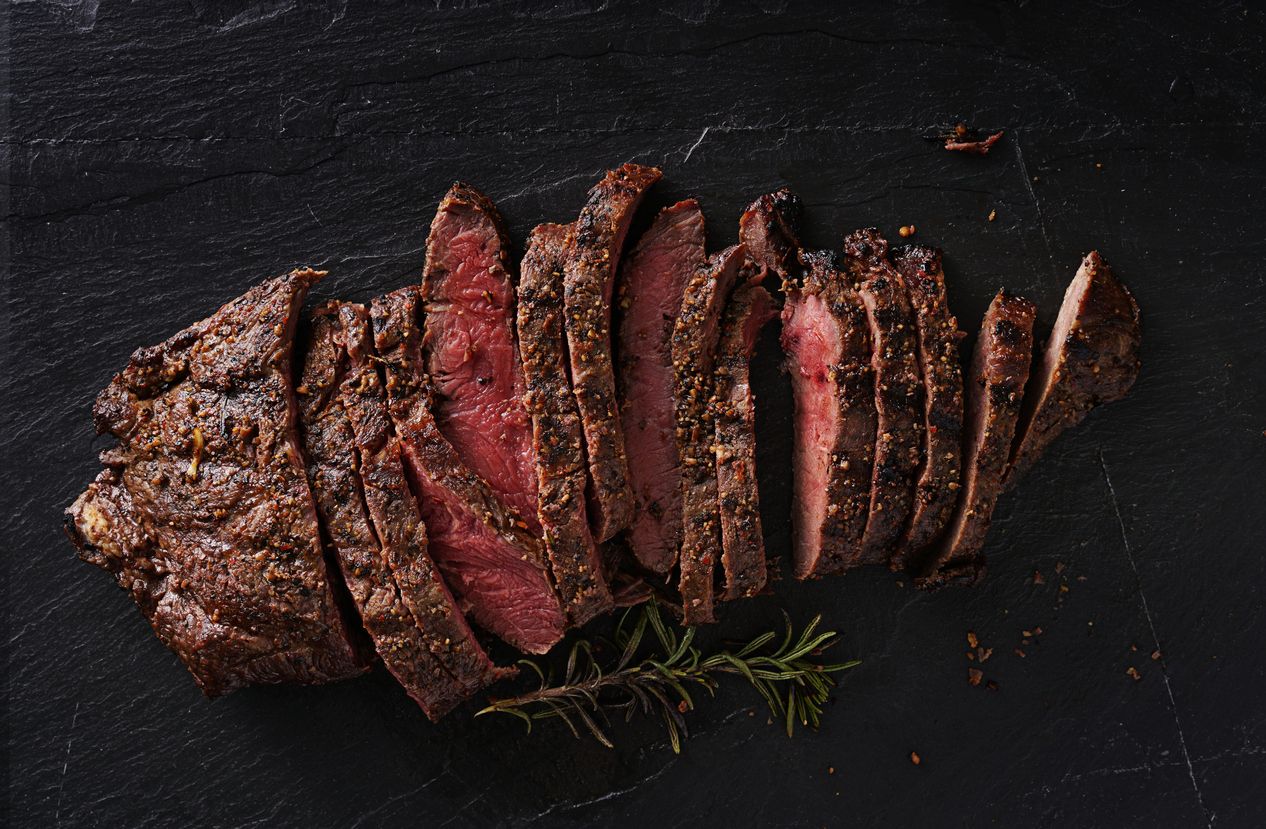
Truth: Fear of cancer in relation to red meat is exaggerated. The effort of healthy lifestyle (maintaining the right body weight, exercising and avoiding smoking cigarettes) is much more important than controlling of red meat receive. If you want to avoid the red meat after all, it should be mostly smoked-processed meat and processed meat.
Myth number 6: You shouldn’t use salt
It is truth that people with hypertension should be avoiding the increased amount of salt because it increases the blood pressure. There has been found only little or none coherence between salt consumption and hypertension. Instead of that, studies are pointing out on the coherence between high blood pressure and high body weight measured by BMI.
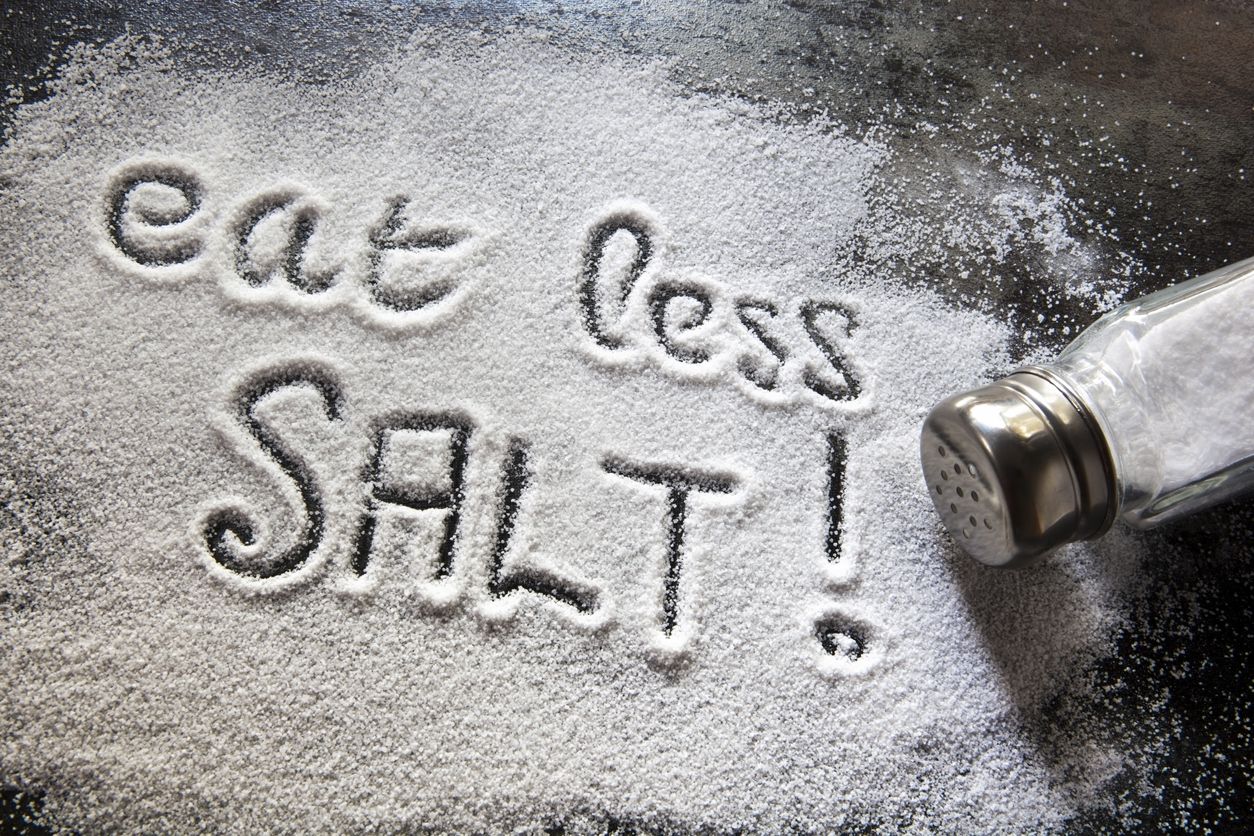
Salt (sodium) is the basic mineral of which consumption is deciding for our health. The problem rests in that the average person needs a twice of the recommended receive. The abundance of sodium doesn’t have to increase the blood pressure but it is related to many other health problems such kidneys damage and increased risk of cognitive decline.
Truth: Salt (sodium) doesn’t have to be related to high blood pressure, with the exception of people with increased salt sensitivity. Despite that, all that is surplus is harmful and even sodium is no exception.
Myth number 7: Bread is bad
Critics and haters denote any amount of gluten as dangerous. As long as small amounts of gluten can bring up some symptoms within people with intestine disorders, there wasn’t noticed any negative response of the organism within other people.
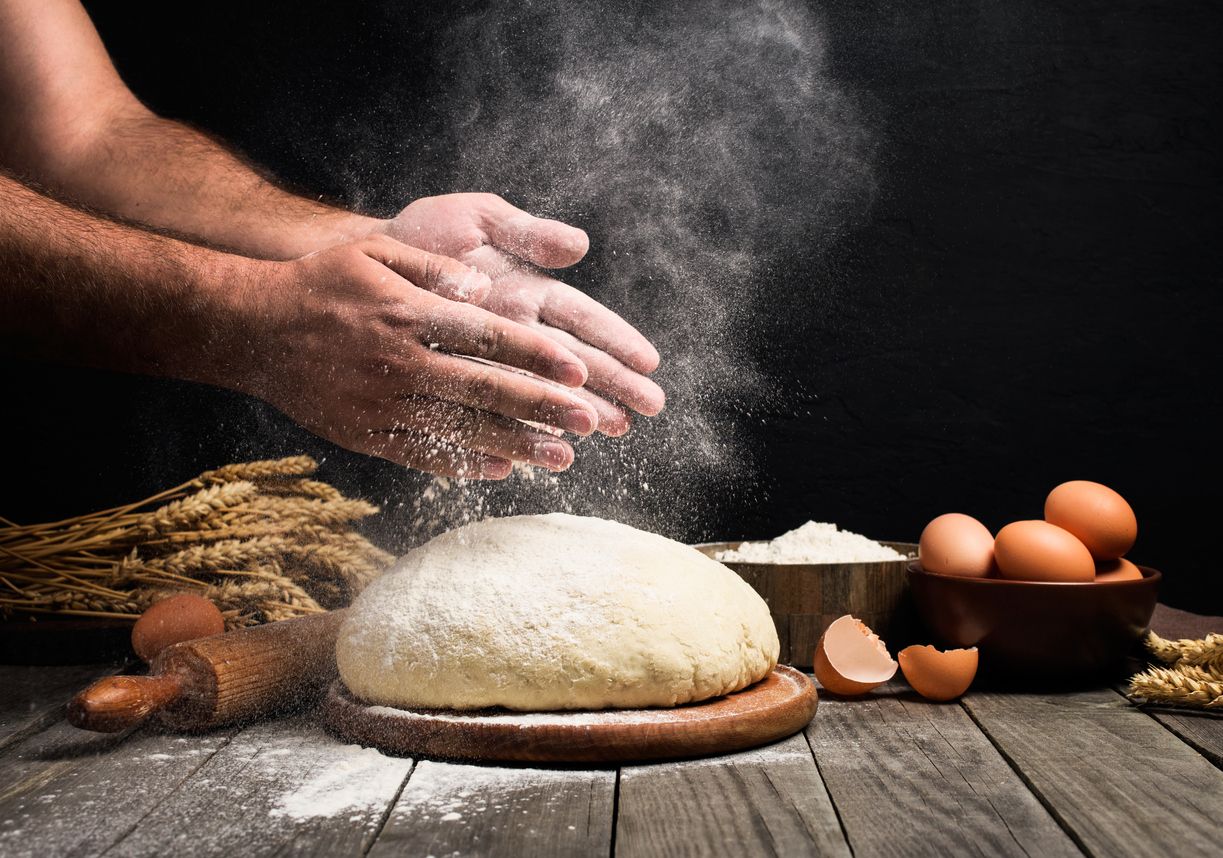
As long as gluten has attracted the attention, there are other compounds which can be even more important for people with suspicion of gluten sensitivity. Researchers from the first study about the gluten sensitivity later practiced another study with conclusion that gluten doesn’t necessarily have to be necessarily responsible for gut syndrome. It was approved that compounds belonging to category FODMAP (which are present in various plant foods) can be the bigger problem.
Truth: Even some people are suffering of wheat intoleration, gluten is not responsible for it. Other components can have an influence on it too.
Myth number 8: Wholemeal bread is much better than the white one
White bread (made of white wheat) and wholemeal bread contain gluten and along with it relating proteins. They contain almost the same amount of calories but wholemeal bread has lower glycemic and insulin index so its consuming causes lower insulin level in the body. For this reason, such as the regard on its higher dietary fibre and micronutrient content, it is claimed that wholemeal bread is much healthier than the white bread.
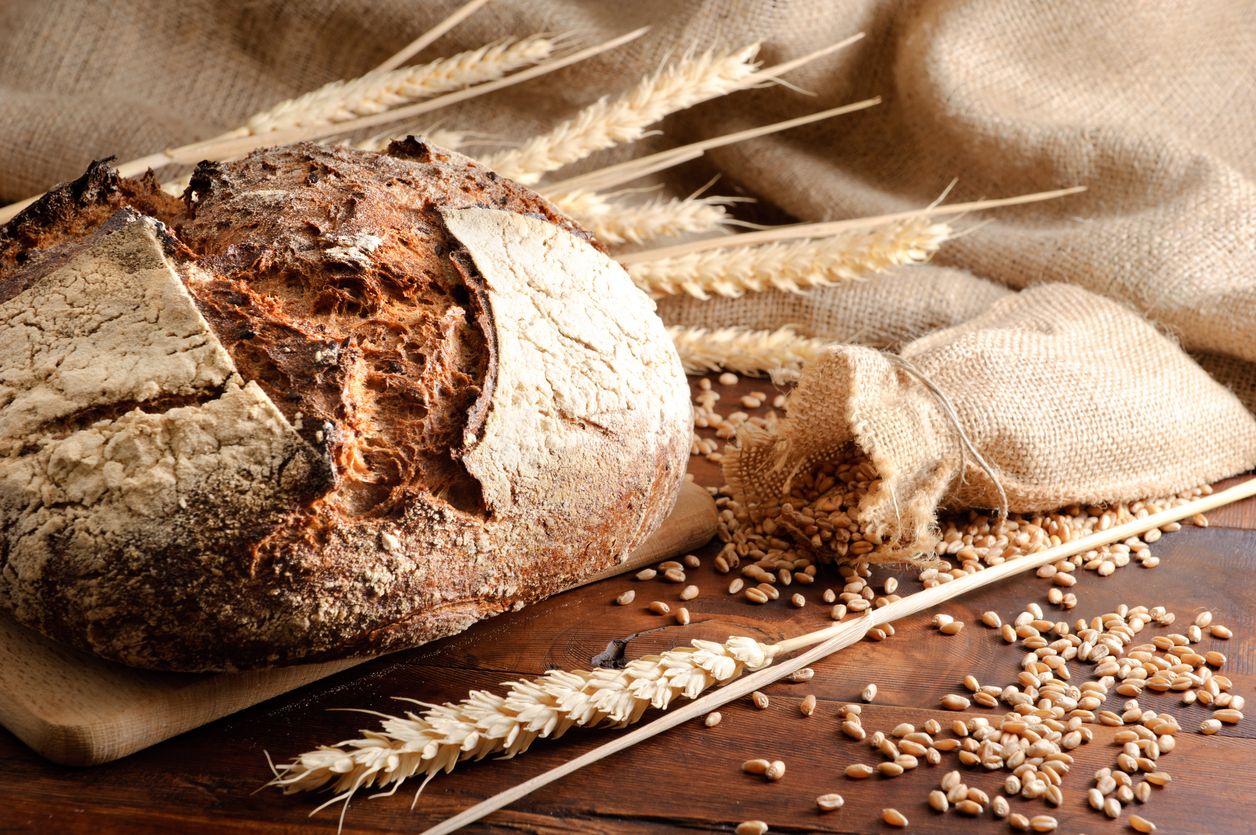
The truth is that the differences between the white bread and wholemeal bread are relatively small. Yes, wholemeal bread has higher amount of dietary fibre but this content is very low in comparison to fruit and vegetables. And yes, the white bread loses more micronutrients when in process but these micronutrients are often repeatedly put into it (bread is called “enriched” then). The only thing of wholemeal bread that is diametrically different from the white bread is the higher content of phytic acid. Phytic acid binds to minerals such as iron or zinc and can slightly lower their absorption in the body. On the other side, phytic acid has protective and anit-inflammatory effect for large intestine.
Truth: The opinion that wholemeal bread is healthier than the white one is not true. There is only one minimum difference between them – none of them contains the high amount of dietary fibre and micronutrients.
Myth number 9: Corn syrup with high fructose content is much worse than sugar
Glucose, therefore sugar in blood is preferred source for energy in the human body. Fructose (another type of sugar) can be used for energy source until the liver is full of glycogen. As soon as the fructose isn’t used for energy source, it transforms into the fatty acids. First researches led to belief that fructose can cause the non alcoholic fatty liver as much as insulin resistance or obesity. Highly-fructose corn syrup (HFCS) is denoted as unhealthy because of the high fructose content. In the dependence upon the production method, liquid HFCS has the content of fructose 42-55%. Saccharose also known as table sugar, contains 50% of fructose. The difference from -8 to +5 is minimum.
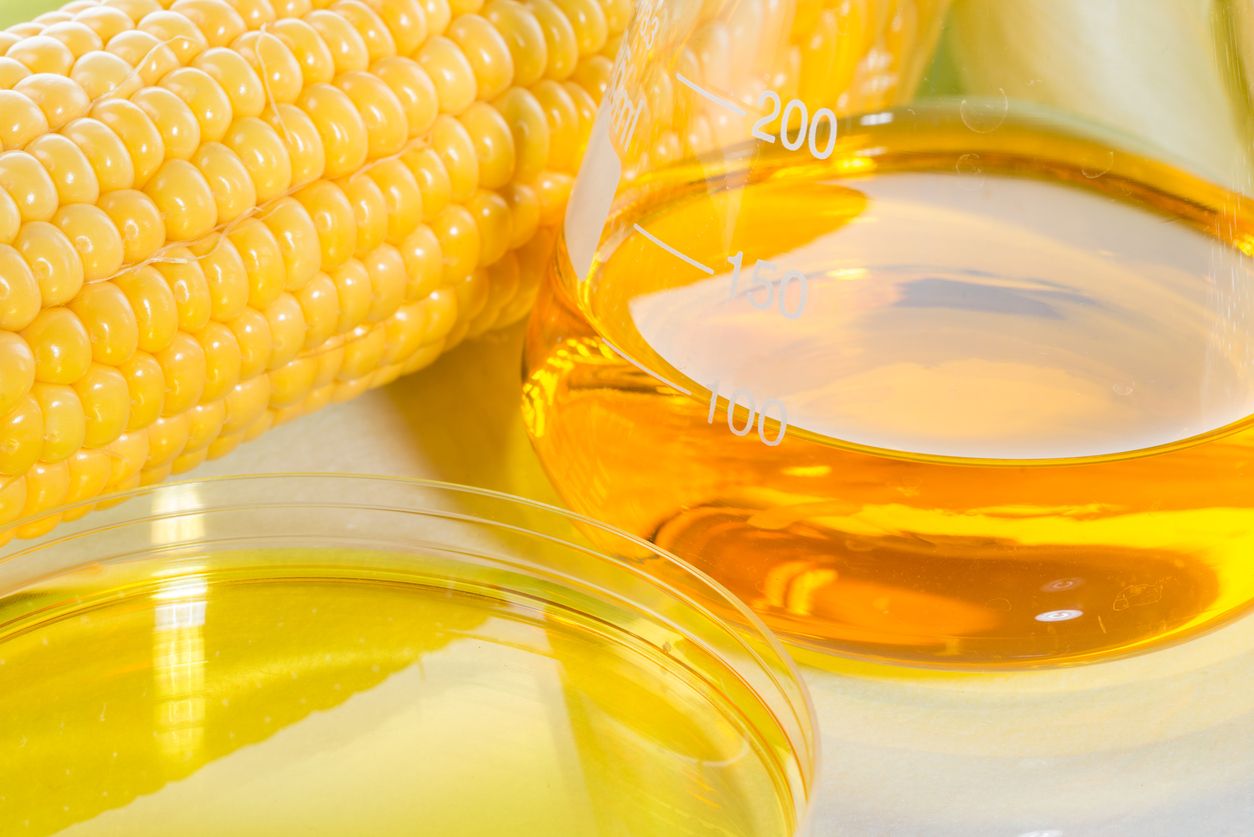
Truth: HFCS and table sugar is from the waste aspect very similar for the health. The fact is that highly-fructose corn syrup can contain more fructose, is unimportant.
Myth number 10: Food is always superior to supplements
How many times have you heard that classic food is better than supplements? It was repeated so many times that word “natural” have gained the positive meaning, while the words “synthetic” or “chemical” has a negative meaning.
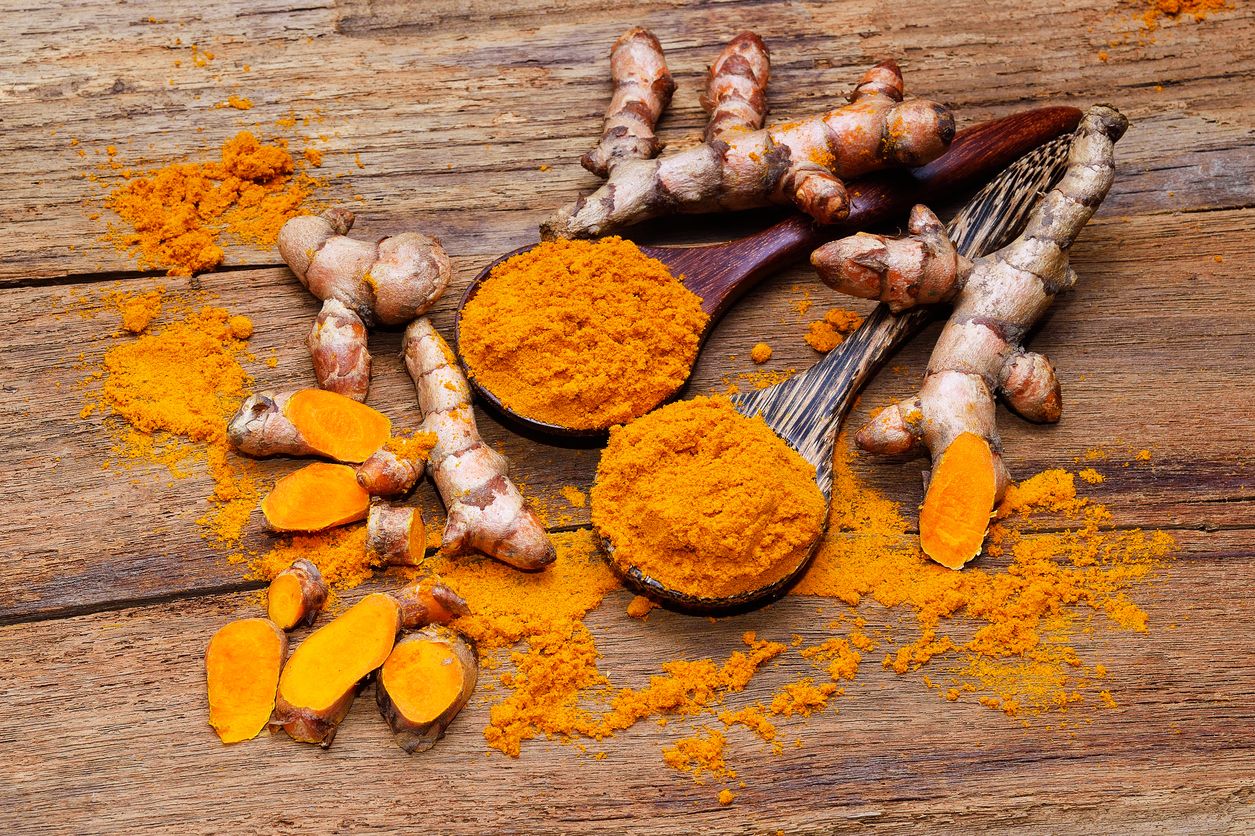
However, it is not so unambiguous. Some compounds are even more effective in supplement form. One of the examples is curcuma, which is often supplemented by piperine (extract of black pepper) or obtained in liposomal form for increasing of its low biological availability. This can be applied within vitamins. For example, phylloquinone (vitamin K1) is tightly bound on the membranes of plants and that is why it is biologically available in supplement form. The same way, folic acid (supplement B9) which is biologically more available than folate (B9 naturally present in food). Many vitamins have natural and synthetic forms. This makes them available for many people. For example, if B12 can’t be synthetized, it would be extremely difficult financially for the vegans.
Truth: As long as it is about vitamins, food doesn’t have to be always the best solution than supplements.
Myth number 11: Supplements are superior to food
This myth is rarely said but often acted according to it. One of the arguments is that intensive agriculture led to soil exhaustion so the natural food (vegetables, cereals and animals fed with it) doesn’t provide the sufficient amount of vitamins and minerals. The next argument is that food is full of unknown compounds, except the known “toxins” such as fearful saturated fat, cholesterol or gluten.
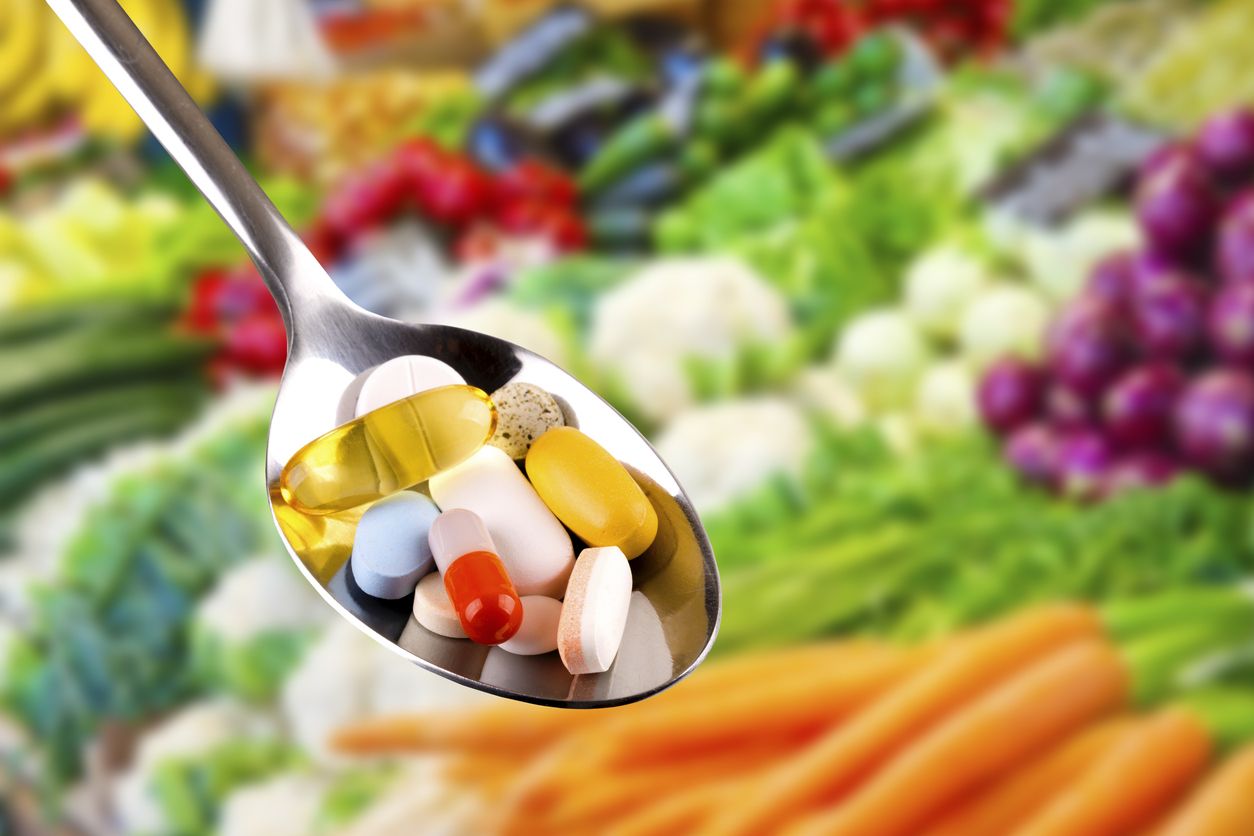
One third of people uses multivitamin. There is not existing prove about the using of multivitamins will increase the length of your life, although it can contribute to the improvement of your health by some ways, on the contrary, it can damage by other ways. The fact is that multivitamins are rarely well constipated. Regarding the expense and space reasons (people are used to use only one capsule per day and they could loathe to use ten of them at the same time), multivitamins are often enriched of micronutrients existing in healthy nutrition in abundance and again, poor of the substances which we need. The best is to focus on what you really need – for example, vitamin B12, if you are vegan or senior, and vitamin D if you see the sun rarely.
Many foods are full of micronutrients which we miss the most. For example, milk is often enriched of vitamin D, salt is iodized, and other foods are enriched of folic acid, so there is a possibility that you have more of it than less. From this aspect, many of our foods function as the supplements. To live only on the supplements of food could only work in the case, that we know what is necessary for us. Every day we learn new things, but we still don’t know enough about the food components and their interactions with various systems in our body. Unless we don’t grow to the perfect understanding of our body and its nutrition systems, it is safer for us to eat balanced food.
Truth: Supplements have their utilization. They offer many benefits although as coming from the name, it can’t be used for replacing the healthy food – it can only supplement it.
Myth number 12: “Eat clean !”
People only rarely agree in what healthy nutrition means. For someone, it means to avoid all that is not natural. For others, it means to avoid all “risking food”, even for the price of functioning only on the supplements. One mutual point of “clean diet” is that no one will tell you what is healthy but everyone will say what you shouldn’t eat.
Veganism can be considered as the prototype of healthy nutrition because it avoids all animal products, whether from the ethic reasons or for the improvement of health condition. Even though vegans and vegetarians live longer, it can be caused by various accounts which aren’t related to food. For example, people which eat according to vegan nutrition, mostly practice also relaxing exercises (meditation, yoga…), they avoid high amounts of alcohol and don’t smoke. Although, in comparison to other people who consume heterogenic food, vegans (and in smaller extent also vegetarians) probably receive smaller amounts of nutrients than is optimal, for example carnitine or vitamin B12. These nutrients can be simply supplied – in present-day there are also plant variants of EPA, DHA and vitamin D3.

However, animal products are not only one “unhealthy” food for supporters of “clean” eating. You can’t eat only vegetables – you have to assure yourself that is organic. It is about the claim that is presented as a matter of course and functions on the principle of “natural” is good, while the “synthetic” is bad.
Another misunderstood idea is that on the cultivation of ecological crops is not possible to use any synthetic substance, while National List of Allowed and Prohibited Substances makes some exceptions. Another misunderstood idea is that on the cultivation of ecological crops isn’t used any pesticide, while there are natural pesticides, they are used for cultivating of ecological crops and are not always better for consumer and environment. Residents of pesticides in food are a serious problem, although it is needed to say that Program of Documentation of Pesticides (PDP) of Ministry of Agriculture USA (USDA) has found out that the majority of food on the market contained the remainings below tolerated limit stated by Environment Protection Agency (EPA). Rinsing off, peeling off the crust and boiling can lower the pesticides amount which have remained in your food.
Is our food healthy enough? Not much. Some gurus of healthy food recommend to eat raw food to not “denature” its nutrients. This is very bad idea. Raw milk can contain harmful bacteria. Raw eggs contain avidine, protein which can bound certain B-vitamins such as biotin. Boiling can lower the nitrate content in vegetables (bad) but also oxalate content (good). It can’t be generalized.
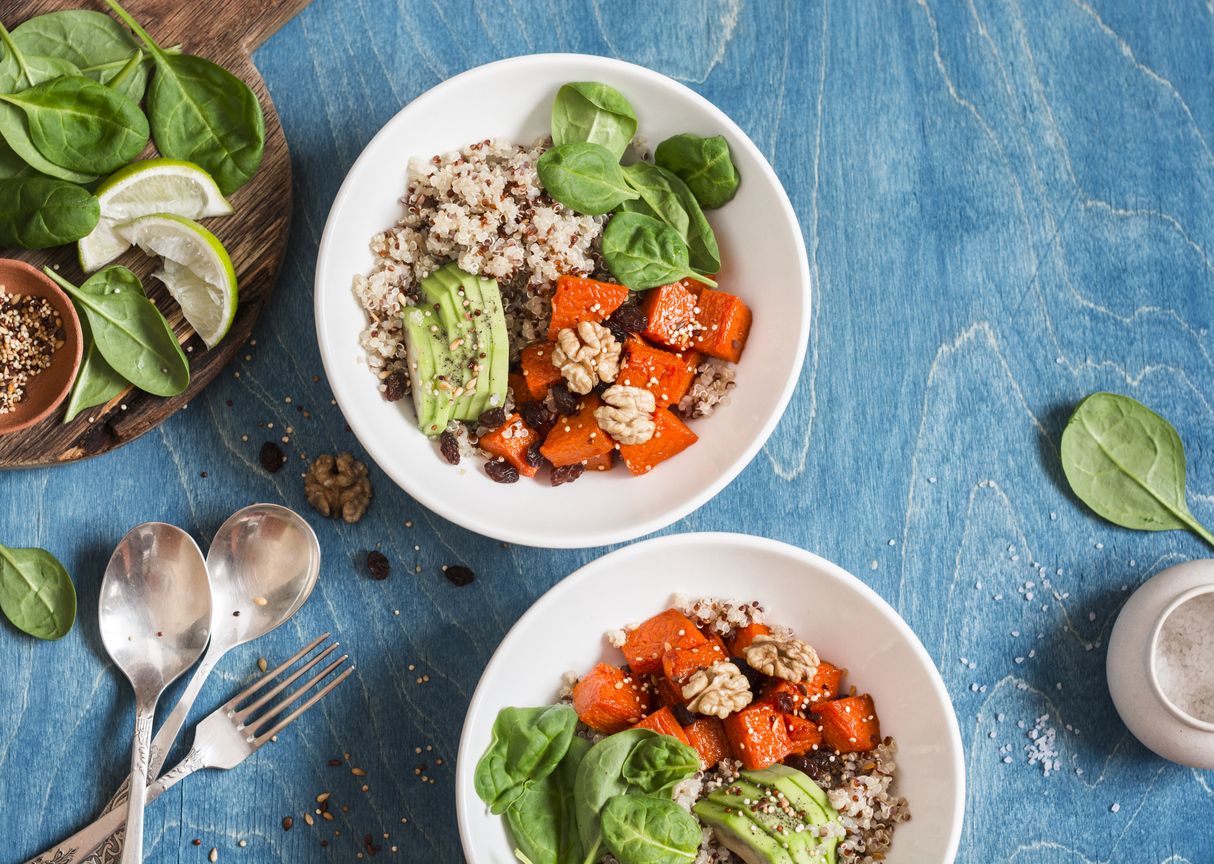
It is simple to see how the obsession by “healthy nutrition” can be followed through too far even to the ortorexion. This doesn’t mean that every food is equal – you should prefer unprocessed rather than processed food – majority of it is poor of the nutrients but full of calories. Although you shouldn’t be worried of consuming something that isn’t raw or organic to not shorten your life.
Truth: “Clean eating” is new trend but neither gurus can agree in which food is healthy and which not. Stick to the basics. Prefer the solid food (but don’t think that any amount of processed food can kill you), eat organic food if you want and if you can afford it, peel off and rinse off the vegetable and fruit (mainly these which have the higher residues of pesticides such as strawberries) and avoid too much stress of what you will be eating because this can shorten your life.
Myth number 13: You should get through the complete detox
“Detoxificating diets” are the final sign of “clean eating” obsession. These diets limit nutrition only on plant juices, sometimes flavoured by supplements. After few days of this regime, you should clean of… What? Good question. Examination of ten companies from 2009 has found out that these companies can’t even name the “toxins” which any of their 15 products focus on – neither to prove the efficiency of these products. Exactly said, toxins are plant or animal substances toxic for people; but according to many gurus, “toxins” include also heavy metals and everything synthetic: not only toxic substances (toxins produced by human such as polluting substances or pesticides) but also preservatives, corn syrup with high content of fructose, etc.

Unfortunately, even the substance is harmful, “detoxification diet” won’t help. Acute toxicity would probably present instant need of doctor, while the chronic toxicity is the best solved by the drinking regime. Liver, kidneys, lungs and other organs work all the time to get rid of harmful substances and to excrete waste products of metabolism; don’t stand them in work!
If there is a probability that “detoxification diets” more harm than help what explains their present-day popularity? The one answer is: quick weight loss. Get rid of carbohydrates in your body and exhaust your reserves of glycogen for less than 24 hours. The resulting loss of some kilograms can persuade you that this diet has really positive effect. If your diet end and you renew your regular eating habits, glycogen and with it relating water will come back and along with it also a few lost kilograms.
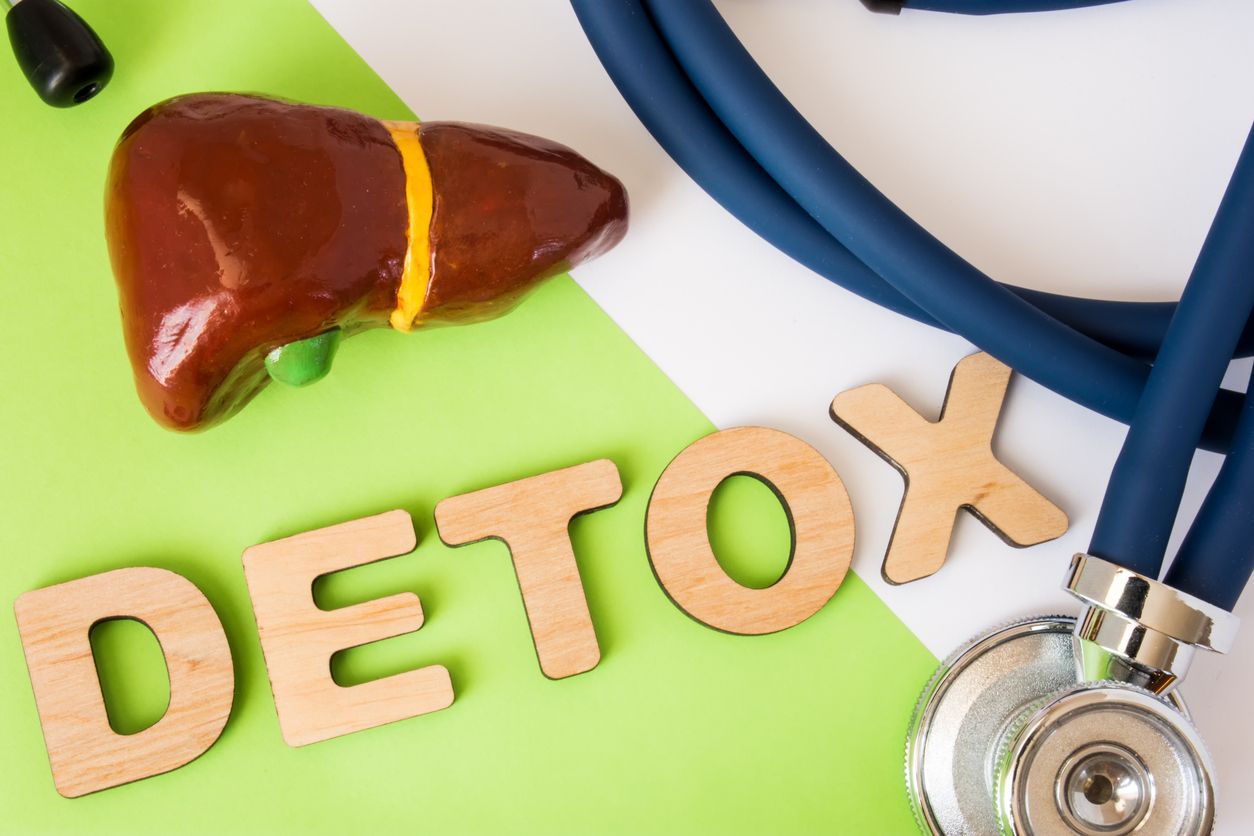
Truth: Focus on maintainable healthy habits such as regular consuming of nutrition food. Proteins, leaf vegetables and food enriched of vitamins and minerals are not just tasty than everything that “detoxificating diet” is offering but also are better for you and your body.
Myth number 14: If you want to lose weight, eat more often
It is easy to track down the origin of this myth. Digestion speeds up your metabolism a little so eating less food and more often should maintain your metabolism increased. Hypothetically. In practice, there is proven that if you receive the same amount of calories per the number of meals, it doesn’t affect the weight loss. Some studies suggest that smaller meals consumated more often cause that you won’t be feeling full enough and it can lead to increased food receiving.
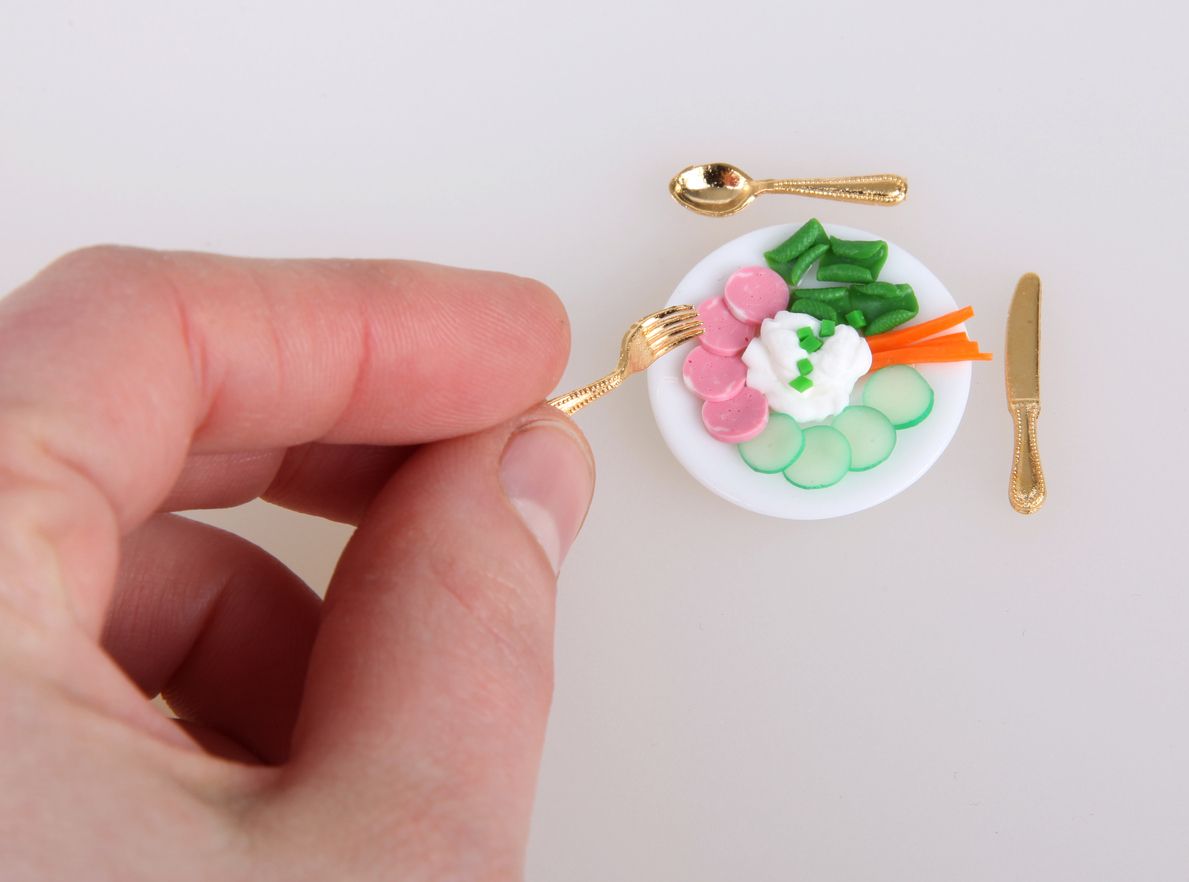
Truth: Digestion slightly increases the speed of your metabolism but the frequency of the meals has the smaller effect than general amount of received calories.
Myth number 15: If you want to lose weight, don’t eat before sleep
Some studies point out on the benefits of consuming the food in earlier hours, others in later hours. Generally it seems that earlier consumers have mild benefits – nothing impressive.

There are two main reasons that eating late at night can prevent from losing weight and both reasons are connected with increase of daily caloric receiving. The first one is more simple: if we eat instead of going to bed, then calories of this meal are calories which we should probably be better without. Another reason is that when we get tired, there is a tendency to eat to be able to function and we prefer sweet food. So if we are working or studying during the night or just watching television, there is more probability that we will be eating not out of hunger but to help in the fight with tiredness.
Truth: If you eat late at night, you won’t gain weight, unless it brings up even higher appetite in you.
Myth number 16: If you want to get rid of fat, exercise on an empty stomach
If you exercise almost at maximum capacity (sprints, HIIT, heavy weights,..) you should eat enough before, because you increase the probability that your performance won’t be sufficient. Majority of people who decide to exercise on an empty stomach, decide for certain form of “cardio” (aerobic exercise) such as jogging. During cardio, there are out-goings linked to the performance and energy on an empty stomach almost the same as on the full stomach.

Truth: Between cardio on an empty or full stomach is only little difference, as long as it is about weight loss, muscle preservation and daily recieve of calories or the speed of metabolism. What really matters is you. Some people feel fresh and full of energy when performing cardio on an empty stomach while others feel tired.
Myth number 17: You need protein immediately after training
When you exercise, you will damage the muscles which must be fixed (and maybe also more bigger). Protein which you consumed will help you to do this fixing, although the existence of aftertraining “anabolic window” still remains in the literature a polemic topic.

Claim that you need protein immediately after training doesn’t have to be exeggerated. To consume 20-40 g of proteins during the next two hours can be ideal but it is not necessary. The most important is daily protein receive. If you want to maximize the fixing of the muscles, focus on 1,5-2,2 g of protein per kilogram of your body weight.
Truth: You don’t have to consume protein immediately after training but benefit can be offered by 20-40 g of protein in the following few hours (and before sleep). The most important is how much protein you receive during the day.
What do you think of these myths? What would you add to the list? Let us know your opinions in comments and in the case you like the article, support it by sharing.
[1] The top 21 nutrition myths of 2017 – https://examine.com/nutrition/awful-nutrition-myths/#summary6

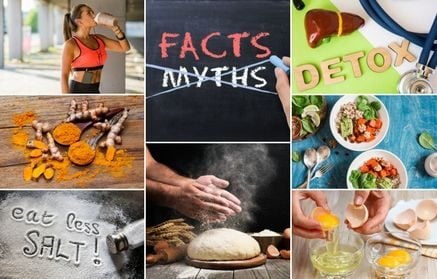
Add a comment